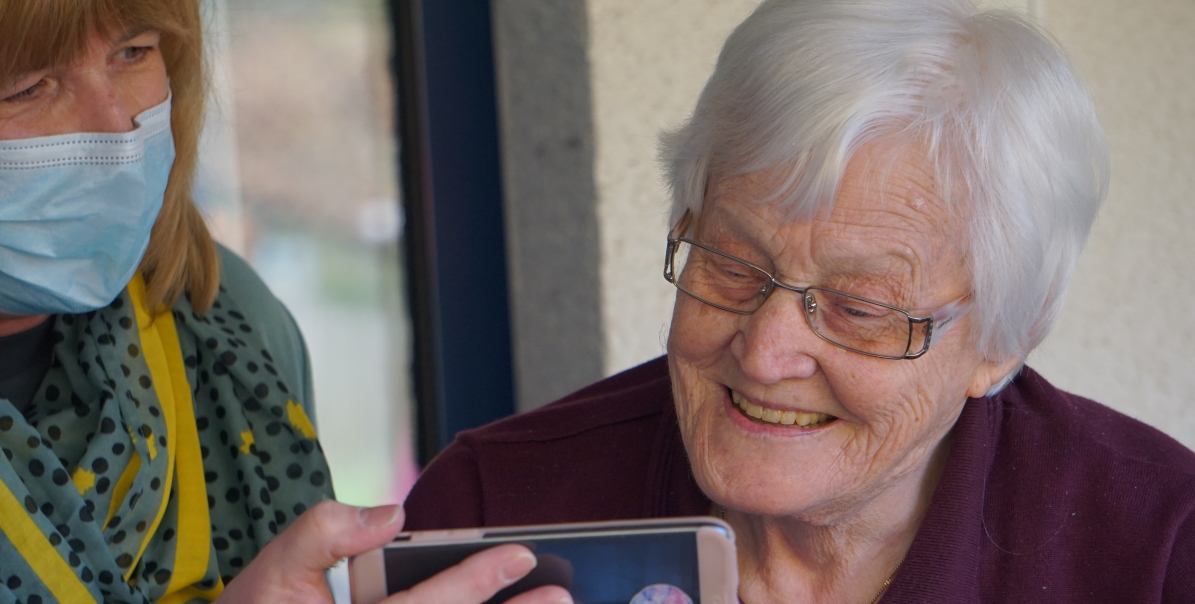Staying Connected in an Era of Social Isolation
Feb 1st 2021

Since the beginning of the Covid-19 pandemic, various social distancing measures have been put into place to protect people from the rapidly spreading virus. These new rules have shown benefits in many ways, however they have also brought with them one negative consequence - the rise in loneliness and social isolation. While the impact of this can be felt by anyone, one group of people especially vulnerable is older adults. Prior to the pandemic, one study found that older adults have a higher likelihood of reporting subjective feelings of loneliness, a lack of feeling like part of a community, and a reduced participation in community based activities (Gilmour & Ramage-Morin, 2020). Since the start of the new pandemic related measures, the prevalence of this has increased dramatically (Hwang, Rabheru, Peisah, Reichman, & Ikeda, 2020). Feelings of loneliness and social isolation have been linked to higher rates of heart disease, sleep problems, symptoms of depression, vision problems, reduced perception of quality of life and death (Hwang et al., 2020). Hopefully these tips can help you stay involved and connected with those around you.
Check in on Your Loved Ones
Life is so busy and it has been challenging for a lot of us to adapt to all of the new changes. Checking in on your loved ones has become a vital part of helping them get through these difficult times (and it can benefit you too!). It is not always easy to reach out to let someone know that loneliness is creeping in. I have heard on more than one occasion that there are fears of feeling like a burden or not wanting to worry family and friends. Regularly checking in on isolated family members and making sure that they are able to meet their daily needs can make a world of difference in their lives. This also applies to loved ones in long-term care facilities. Although they are surrounded by staff, reduced contact with family has had a major impact on their overall well-being. Check in with the facilities to arrange video calls and bring a smile to their face.

Join Online Communities
It can be challenging to continue with participation in community events while everything is online. What are your interests? What kinds of activities did you enjoy before Covid-19? Reaching out to community organizations, churches, and activity centers to ask about services offered online during the pandemic can help connect you with a community of people with similar interests and help alleviate some of the heavy feelings that isolation may have brought on. Trust me, you'd be surprised how creative organizations have become! Try not to assume that the activities you once enjoyed are no longer available. Get curious and ask around!

Create New Traditions
As time moves forward, many important days and holidays have seen restricted social contact. It can be easy to send to quick text or have a fast call to commemorate these occasions, however this can leave many people feeling like they have lost something that was once an important way to connect with others. It may be time to get creative! Include your isolated loved ones by having a dinner video call on a birthday or holiday. Yes, that's right...sharing a meal at the same time - just at different dinner tables. Get a cake and sing to them, blow out some candles, send a gift and have them open it on camera. If technology is an issue for them, having a family member set it up in a safe way, or reaching out to a community organization for assistance can be options. Don't underestimate the power of connection, especially if you would have been gathering together pre-Covid.
Get Support
If you are experiencing feelings of loneliness and social isolation, you are definitely not alone. In some circumstances, reaching out to loved ones simply is not an option you either have or feel comfortable with. Getting support elsewhere may be a great way to help. Contact your physician, a mental health professional, a distress line, or a community organization to get the support you need to help you feel better. You do not have to suffer in isolation. If you are the loved one of an isolated family member and you notice that they need support, provide them with resources and help them get connected.
Cheers,
Jessica Landry, M.Ed., RP (Qualifying)
Bibliography
Gilmour, H., & Ramage-Morin, P.L. (2020). Social isolation and mortality among Canadian seniors. Statistics Canada.Hwang, T-J., Rabher, K., Peisah, C., Reichman, W., & Ikeda, M. (2020). Loneliness and social isolation during the Covid-19 pandemic. NCBI.